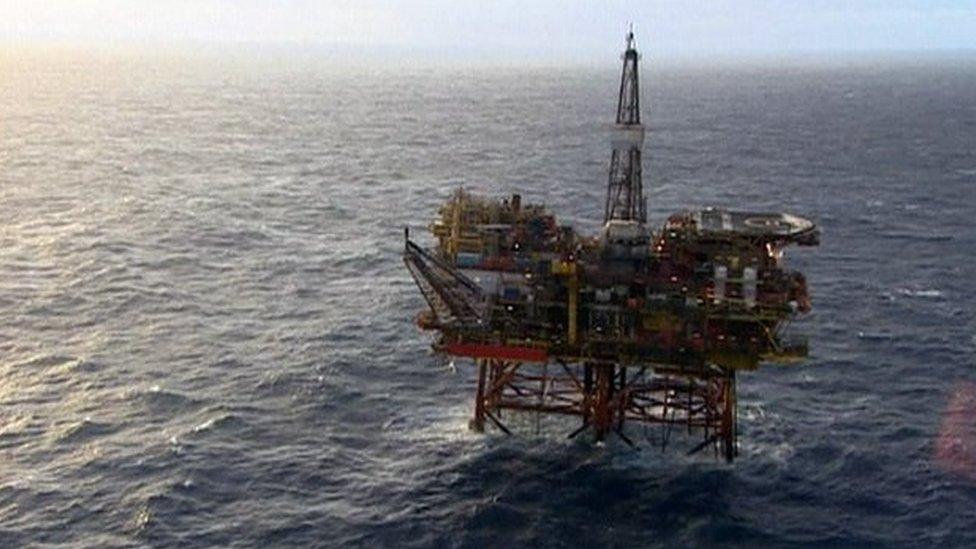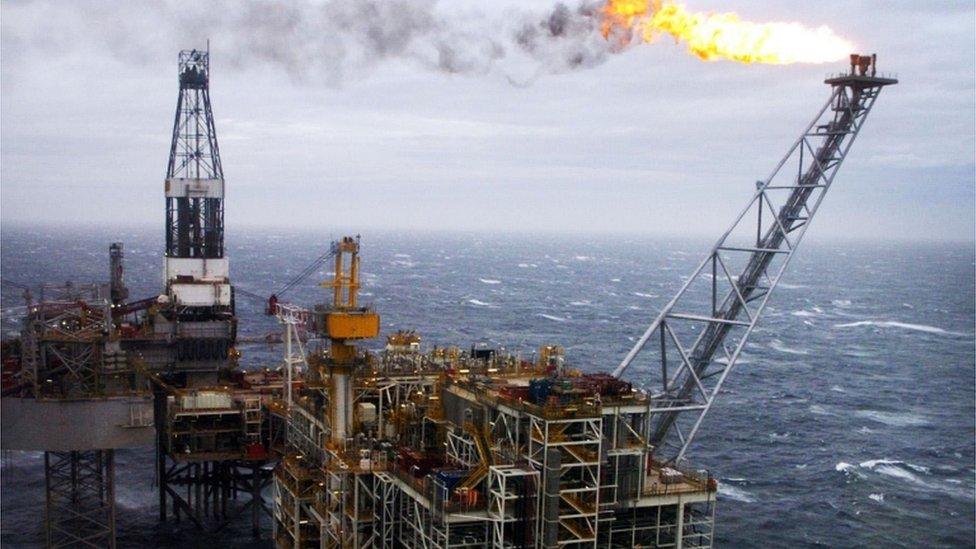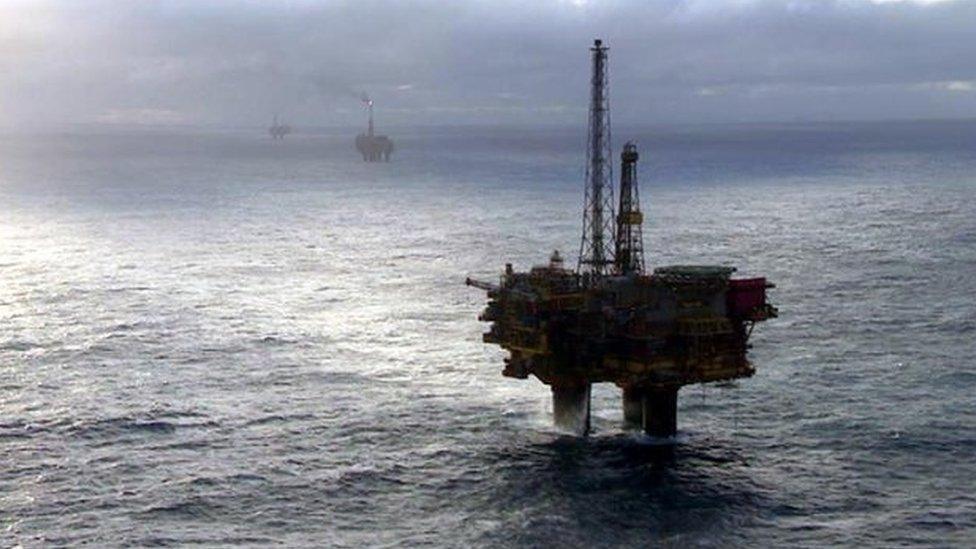Sir Ed Davey calls for review of decommissioning rules
- Published

A former UK energy secretary has called for a review of rules that require most infrastructure from North Sea installations to be removed at the end of their life.
Sir Ed Davey said there was growing evidence that platforms provided a natural reef for marine life.
He argued there was "growing concern" that the "clean seabed principle" might harm the marine environment.
WWF Scotland said oil firms should not be allowed to dodge their obligations.
The UK government said the decommissioning process was "already flexible" but "in the vast majority of cases" installations must be fully removed.
Under existing rules - which include the Petroleum Act 1998 and the Ospar convention, external governing the North Sea - operators are obliged, under most circumstances, to leave no trace of their operations after installations have reached the end of their lives.
But in an article in the Times, Sir Ed Davey - a Liberal Democrat minister in the former coalition government - and environmentalist Jonathon Porritt argued that environmental science "now questions this legal framework".
'Important habitats'
They wrote: "The evidence is that the foundations of oil and gas platforms and wind turbines, rather like shipwrecks, can provide important habitats for valuable marine species.
"From hard surfaces acting like a natural reef to de facto marine conservation areas, helping to replenish some fish stocks, many offshore installations have helped to nurture marine eco-systems as biodiverse as natural reefs.
"There isn't yet consensus on a 'new best decommissioning practice' to take account of this science.
"But before we spend billions removing potentially valuable habitats, we should find out."

Sir Ed and Mr Porritt also suggested money for removing platforms should instead be spent on environmental measures.
They said a new "North Sea Environment Fund" could be capitalised over the next two decades through savings made from "a more flexible approach to decommissioning".
They added: "The exact formula would be for analysis and debate, but it would be reasonable to expect a fund of at least £5bn over this period.
"And while the uses of such a fund must also be debated, strong contenders would be restoration of natural reefs in the North Sea; North Sea renewables, like offshore wind and wave power; the re-booting of Britain's carbon, capture and storage policy; and support for those communities that are going to be seriously affected as we transition out of the era of fossil fuels."
A spokesman for the UK Department for Business, Energy and Industrial Strategy said: "UK decommissioning is already flexible so that alternatives to completely removing installations can be considered for larger structures, and for pipelines where there is no significant impact on the environment, other sea users, safety implications and cost.
"In the vast majority of cases installations must be fully removed."
'Hazardous legacy'
WWF Scotland director Lang Banks said: "Having made hundreds of millions of pounds in profit over the years, oil and gas companies should not be allowed to dodge their obligations to clean up their mess and protect the marine environment. Give the fossil fuel industry an inch on this and they'll take a mile.
"The Ospar agreement already allows, in certain circumstances such as protecting worker safety or preventing serious risk to the environment, for companies to request permission to leave some stuff behind on the seabed. This is something we support.
"It should be remembered that it's only because of these Ospar rules that every rig placed in the North Sea for the past two decades has had to be built in a way that allows it to be removed.
"Any moves to unwind Ospar's rules on this issue would not be in the interests of protecting the marine environment or maintaining the 'polluter pays' principle."
He added: "The idea that the oil and gas industry would gladly spend all the money they'd save, from not having to clean up their hazardous legacy, into other environmental projects instead is pie in the sky."
- Published15 November 2016
